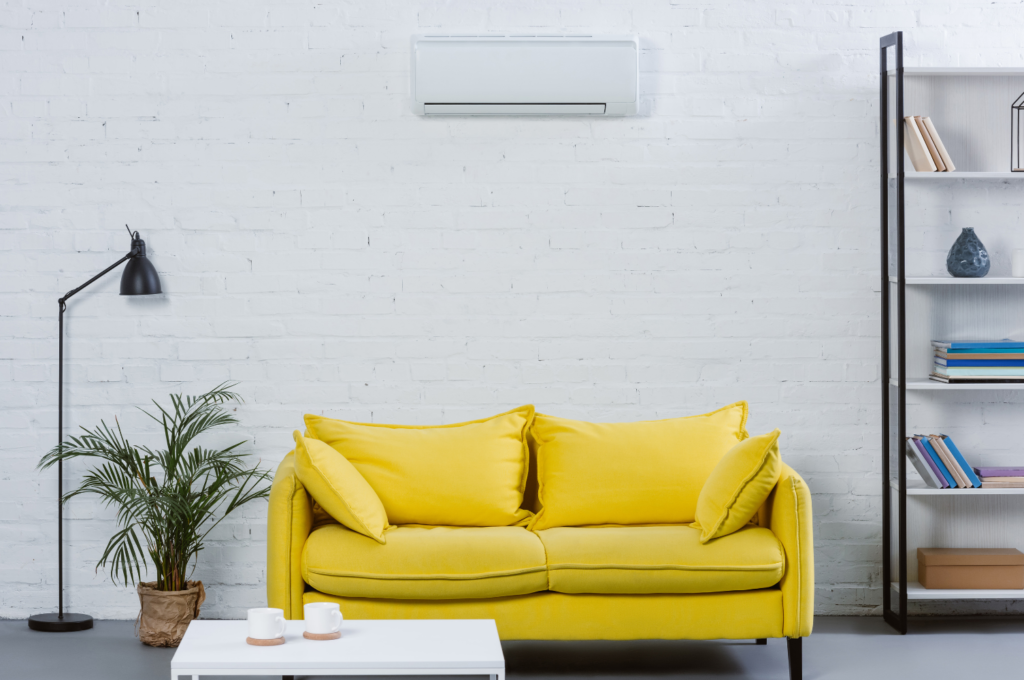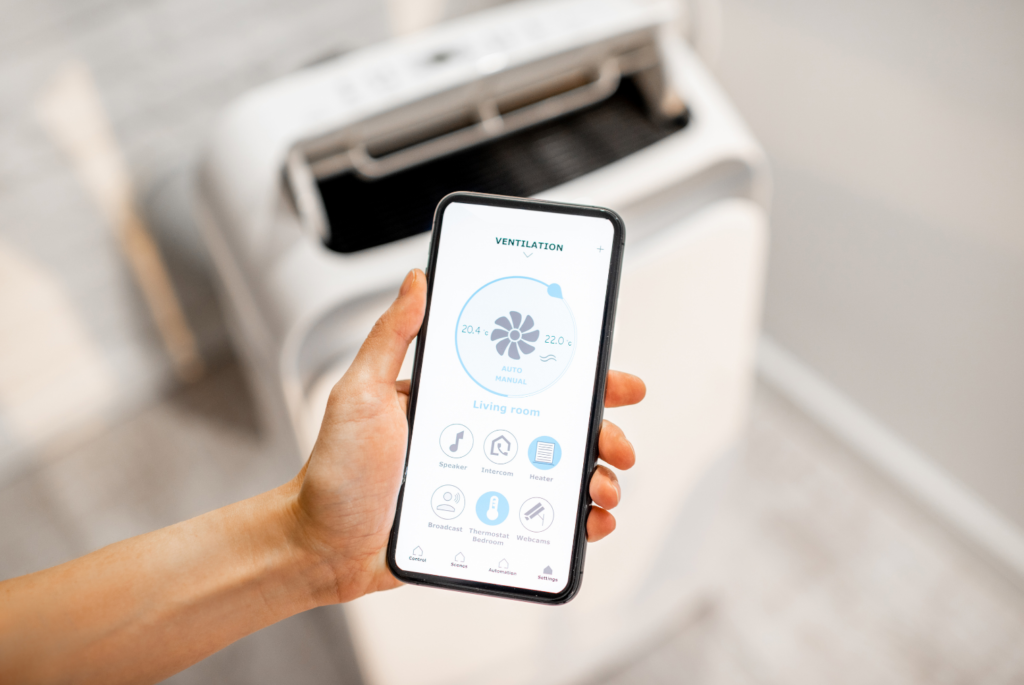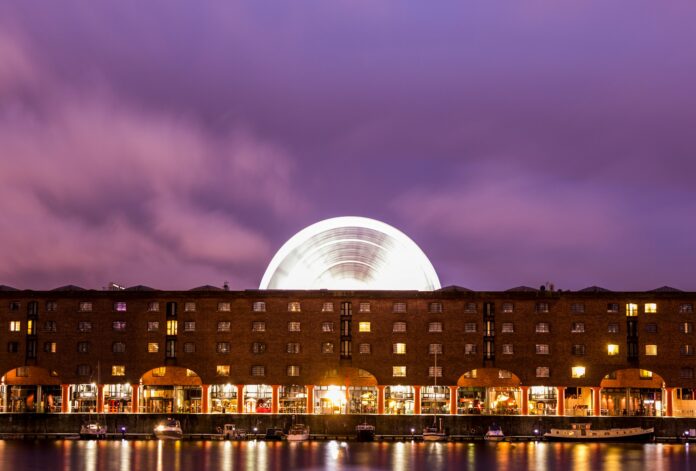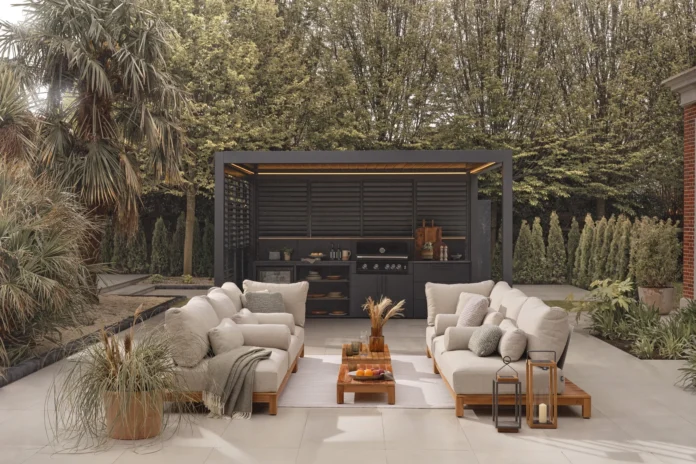You know that heat? The stuff that hits you when you step off the plane. The type that makes your digits swell as the, erm, digits swell. The kind of heat you can smell. Yep, that heat.
Where once you could escape to the office or shopping mall, which boasted the blessing of industrial air conditioners keeping things cool, with the sudden, enormous rise in home working, suddenly homeowners are having to consider climate control on a domestic level.
That said, air conditioner installation needs precise positioning and the correct power output for the size of the home it sits within to make the investment economically savvy and environmentally as low in impact as is possible. With that in mind, here are 4 things to consider when choosing the right air conditioning unit for your home.
THE LOCATION
The location of your home has a big influence on what your air conditioning solution should be. A home in Vermont has an entirely different heat situation at hand than someone residing in south Florida, for instance. If your need for AC is rather sporadic, you might want to go for something such as a packaged terminal air conditioner (PTAC), a window unit, or even a portable AC unit that can be moved from room to room. This, of course, goes hand in hand with the use of your home, and with what frequency all rooms are used.
If your home is in a warmer, more humid climate for most of the year, or one that experiences extreme summer heat, then you’ll likely be needing the services of an air conditioning unit almost 24/7 at certain times of the year. With that in mind, you’ll want something reliable and resilient enough to not only cool a home during these sometimes intense conditions, but serve you well for years to come. In this case, it’s likely that a central AC or central heating and air unit would be right for you. For durability and drive, you can buy PTAC units here or from other local outlets for customised control and comfort levels.
While undeniably being far and ahead the most expensive option, and requires your home to have ductwork, the benefits and longevity that come with a good central heating and air unit cannot be overstated.

THE SIZE OF YOUR HOME
The size of your home dictates the type of AC system you invest in, and whether it’s run centrally or separately. While central control usually comes a standard, a small enough home may not actually need such a robust system to keep it cool, and may not even be capable of being equipped with ductwork either.
This is why it’s important to consider the size of your place in tandem with its location before you arrive at a decision. If your home is only, say, 1,000 square feet, you can perhaps live with a window unit or two instead of central air conditioning, especially if a portion of the home is used infrequently in comparison to the rest. Window units can last for a very long time if taken care of, and provide a solid choice for those seeking that proper in-between cooling option. Such units may well require more regular maintenance from specialist services, like this one.
On the other hand, a large home will almost certainly benefit from a central unit in most cases. Not only does it typically provide the benefit of having both air and heat capable of being dispersed evenly throughout every room of the home, but it can also cool a large area without a problem and with maximum efficiency. As noted with the previous example, however, this is not always the case. Should your home be a log cabin in Alaska, for instance (an extreme example, we realise), and with no ductwork, you’ll probably want a ductless mini-split air conditioner, which is an AC unit specifically designed for homes without ductwork.
Don’t let anyone tell you that size (or geography) doesn’t matter.
PREFERENCES & USE
On top of all logistical matters to consider regarding the physical size and location of the home, you should also take into account the individual aspects of the decision that will come into play. Is the home in question a second home or a summer vacation property? If this is the case, your decision may vary in comparison to if this was your main home.
While selecting an air conditioning unit for your home is crucial for the comfort of ambient temperature, remember that many also possess air purifying functions. Air purifiers specifically filter out pollutants, allergens, and particles from the air, improving indoor air quality. When choosing an air purifier, consider factors like room size, filtration technology, and CADR (Clean Air Delivery Rate) to ensure it effectively cleans the air in your home.

TAKE A CHANCE ON TECH
You may also want to consider your willingness to take a chance on new technology. You may be averse to trying something relatively new on a main property that’s already been built, but if you’re building a second home or even a property for sale, who’s to say you can’t give geothermal heating and cooling a chance? Such systems are considerably less impactful on the environment than air conditioning, and will also add value to your property. According to the Wall Street Journal via National Geographic, ‘’green housing will grow from $36 billion a year to as much as $114 billion. That’s approaching 30 to 40 percent of the entire housing market’’. Should you have the financial clout to invest, it sounds a prudent move both economically and environmentally.
THE BOTTOM LINE
As with anything home improvement-related, there are push and pull factors and personal preferences which affect your decision. We hope we’ve made the weight of that choice a little lighter with our tips!





